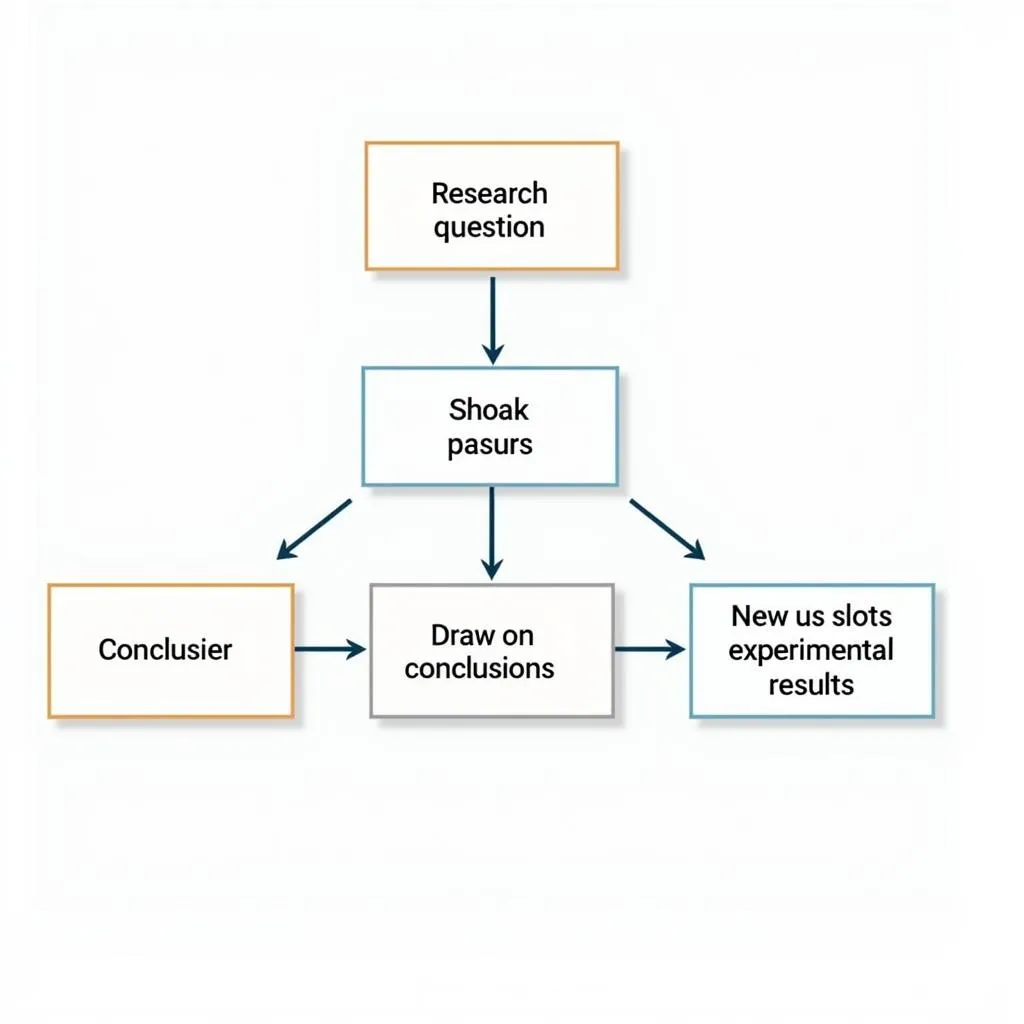Science, at its core, is a quest to understand the universe and our place in it. This quest begins with a question—a spark of curiosity that ignites the flame of research. But not all research questions are created equal. Some burn bright and lead to groundbreaking discoveries, while others sputter and fade, failing to illuminate the unknown. The key to unlocking scientific progress lies in crafting research questions that are not only interesting but also answerable.
What Makes a Good Research Question in Science?
A good research question is like a well-aimed arrow, guiding the researcher towards a specific target. It should be:
- Clear and Focused: Avoid ambiguity and jargon. The question should be easily understandable and address a specific aspect of the research topic.
- Testable: The question should be answerable through empirical observation or experimentation. It should be possible to collect data to either support or refute the question.
- Significant: The answer to the question should contribute meaningfully to the field of study. It should advance our understanding or have practical implications.
- Original: While building upon existing research is crucial, a good research question should explore a novel aspect or approach the problem from a new angle.
- Feasible: The research question should be addressable within the given resources and time frame. Consider the availability of data, equipment, and expertise.
 Steps of the Scientific Method
Steps of the Scientific Method
Types of Research Questions in Science
Scientific inquiry is a multifaceted endeavor, and research questions can take various forms depending on the discipline and research goals. Some common types include:
- Descriptive: These questions seek to describe a phenomenon, process, or relationship. For example, “What is the migration pattern of monarch butterflies?”
- Comparative: These questions aim to compare two or more groups or phenomena to identify similarities or differences. For example, “Does exposure to sunlight affect the growth rate of plants differently depending on their species?”
- Causal: These questions aim to determine cause-and-effect relationships. For example, “Does smoking cigarettes increase the risk of lung cancer?”
- Correlational: These questions explore the relationship between two variables. For example, “Is there a correlation between exercise and stress levels?”
How to Formulate Strong Research Questions
Formulating a robust research question is an iterative process that often involves refining and revising initial ideas. Here are some strategies to help you craft compelling research questions:
- Identify your interests: Start with a topic that genuinely fascinates you. Passion fuels curiosity, which is the bedrock of compelling research.
- Review existing literature: Delve into the current state of knowledge in your chosen area. Identify gaps, inconsistencies, or areas needing further exploration.
- Brainstorm potential questions: Write down any question that comes to mind, no matter how broad or specific. Don’t censor yourself at this stage.
- Refine and focus your questions: Analyze your brainstormed list. Combine, revise, or eliminate questions to arrive at a manageable set that meets the criteria of a good research question.
- Consult with experts: Seek feedback from professors, mentors, or researchers in your field. Their insights and perspectives can be invaluable in shaping your research direction.
 Scientist Reviewing Research Papers
Scientist Reviewing Research Papers
Common Pitfalls to Avoid
- Asking questions that are too broad: A broad question can lead to an unfocused research project. For example, instead of asking, “What is the impact of climate change?”, consider narrowing it down to “How does climate change affect coral reef ecosystems in the Pacific Ocean?”
- Asking questions that are too narrow: A question that is too specific might not yield significant findings. Ensure your question has enough scope to contribute meaningfully to the field.
- Asking questions that are not answerable: Ensure your question can be addressed through empirical evidence. Questions based solely on speculation or personal opinions are not suitable for scientific research.
- Neglecting ethical considerations: Always consider the ethical implications of your research question. Will your research involve human subjects, animals, or sensitive data?
The Importance of Research Questions in Different Scientific Disciplines
Research questions serve as the compass guiding scientific inquiry across all disciplines. However, the specific types of questions and approaches to answering them can vary significantly:
- Medical Research: Research questions in medicine often focus on understanding diseases, developing new treatments, and improving patient outcomes. For example, researchers at Wasatch Clinical Research might ask, “What is the efficacy of a new drug in treating a specific type of cancer?”
- Social Sciences: Researchers in fields like psychology, sociology, and economics grapple with questions about human behavior, social structures, and societal patterns. For instance, a question might be, “How do social media platforms influence political polarization?”
- Environmental Science: Research questions in this field often revolve around understanding and mitigating the impact of human activities on the environment. An example is, “What are the long-term effects of deforestation on biodiversity?”
 Scientists Collaborating in a Lab
Scientists Collaborating in a Lab
Conclusion
Asking the right research questions is the cornerstone of scientific progress. A well-crafted research question serves as a roadmap, guiding scientists towards meaningful discoveries and expanding the frontiers of knowledge. By adhering to the principles of clarity, testability, significance, originality, and feasibility, researchers can maximize their chances of making valuable contributions to their respective fields. As we continue to explore the mysteries of the universe, both great and small, the quality of our research questions will undoubtedly shape the future of scientific exploration.